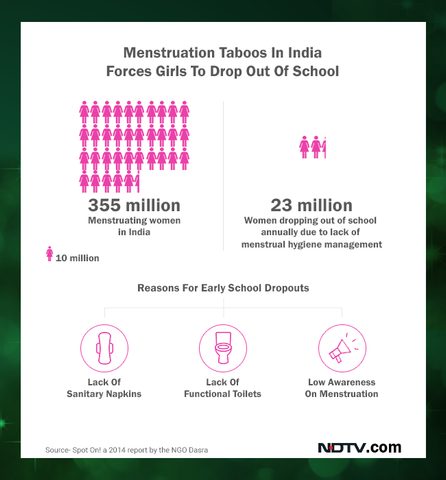India is a country that is still to overcome the taboo of menstruation or periods. Something so natural is more than often considered impure and a topic to avoid for open discussion.
It is wonderful to see that Himalayan Hemp have developed reusable and biodegradable hemp sanitary napkins keeping in mind the health of women as well as the Swachh Bharat Abhiyan initiative by the Government of India.
With Global Network for Equality in Tamilnadu to donate reusable hemp sanitary pads to imprisoned women. Moreover, some of them also give births to children during their imprisonment making them grow mal-nutritioned in horrible prison conditions. Migrant workers are also in need of these sanitary pads in these harsh pandemic times. Providing them with reusable hemp sanitary pads will be a goodwill gesture and can also at least help them maintaining menstrual hygiene.
Most drugstore available napkins are synthetic in nature, which can be extremely harmful, causing hormonal dysfunctions, ovarian cancers, and other thyroid conditions.
Replacing these synthetic napkins are cent percent anti-bacterial and biodegradable ones, which could be great for the painful, heavy flow days for pregnant women or even travelers for that matter.

As youth, we need to address unhygienic menstruation methods like plastic and rags and educate the people who lack the essential awareness and access to sanitary health measures. Over 88% percent of Indian women do not have access to any kind of awareness or means of proper menstrual hygiene.
We are a country that flourishes amongst many diverse cultures and ethnicities, and we have to overcome the stigma around natural female hygiene.
Our country that houses a population of 1,387,297,452 as of January 2020, witnesses over 23 million young girls drop out of school every year due to menstruation and improper hygiene.
We would love to think that we have come a long way from the unhygienic cloth pads to tampons, napkins, and menstrual cups. But is it really so?
Then, why do women still have to protect their dignity in a black plastic bag or a blue liquid in the napkin ads instead of blood, how it should be.

There is no way around to think that India lacks proper menstrual hygiene facilities, whether you consider the part with awareness or the one with the availability of sanitary pads.
Speaking in stats, the adolescent count in India stands somewhere around 355 million. Studies show that girls or women who have schooling of 12 or more years are more likely to use hygienic menstruation methods than ones with no education. So, it’s all interconnected, right? Illiteracy to poor health decisions, all of it.

Whether it’s the rural which bars women from entering temples when they are already fighting a misery in their body, or the taboo not to consider it a viable subject to be spoken on, we still have a long way to go.
Think again, should you condemn a thing that bleeds twelve weeks a year and still brings life to the world?






